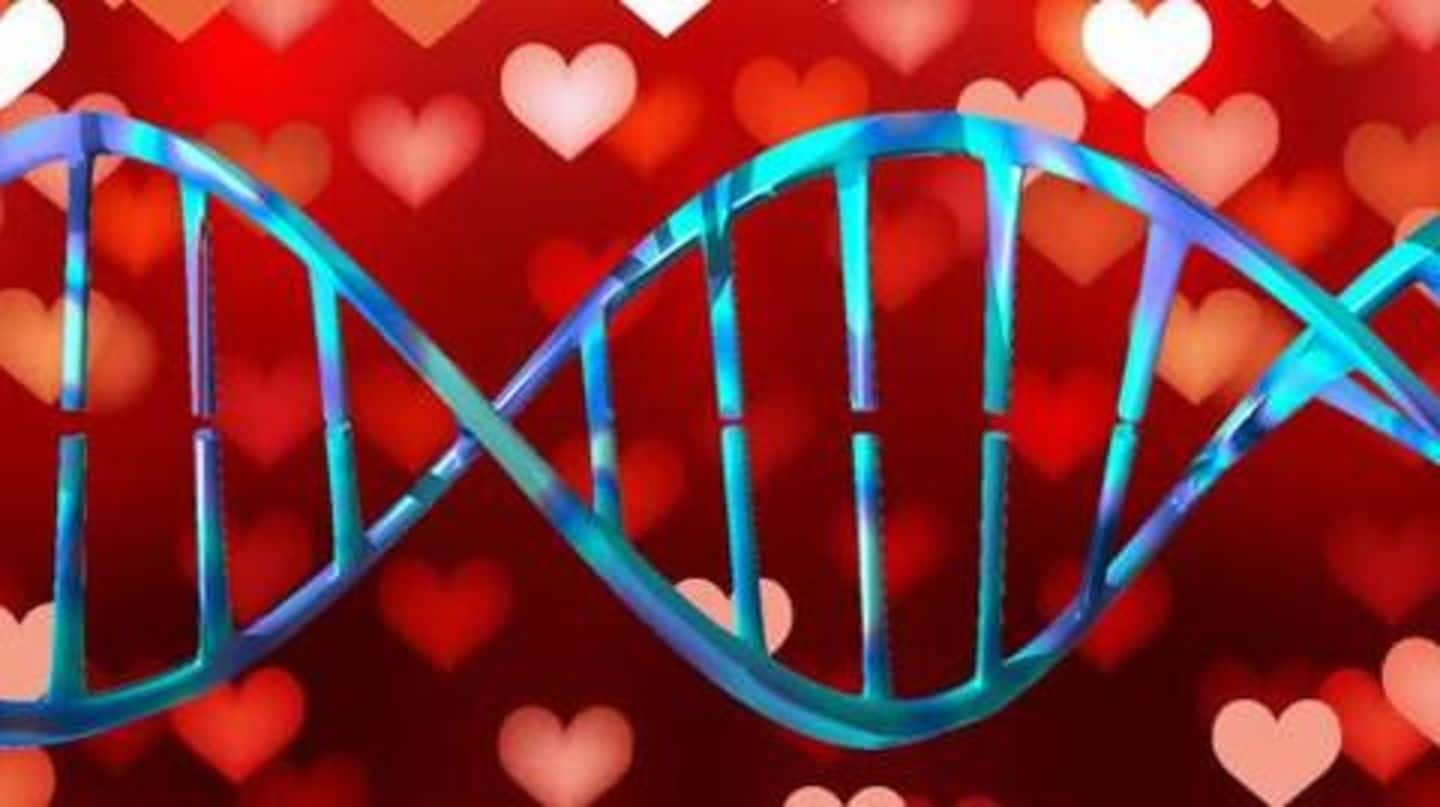
Harvard scientist plans a dating-app based on DNA. God much?
What's the story
Normally, when you hear about a dating app, you think of a platform that uses location among other factors to find a partner to date.
However, in a strange development, a Harvard scientist specializing in genetics is working on a dating app that matches people on the basis of their DNA, something that has raised concerns of eugenics now.
Here's all about it.
App
Dating app based on DNA-matching. But why?
The app by geneticist George Church proposes to match the DNA of a user with that of others to find a suitable partner.
According to Church, it would screen out people considered to have the 'wrong' DNA and match with those with the 'right' one.
This, he says, will cut down the transmission of DNA abnormalities, eventually eliminating genetic disorders from the world.
Working
How this gene-match idea works
When two individuals mate, the dominant genes for a particular trait in one person overshadow the recessive ones for the same trait in another and show up in the baby.
Now, owing to this behavior, Church is working on the dating app that would match people with dominant genes for select hereditary diseases only with those carrying the recessive ones for those diseases.
Goal
This would reduce disease transmission into babies, Church hopes
Church hopes that the matching technique used in the DNA dating app would prevent two people with disease-causing recessive genes from having a baby and transmitting that disease into the baby.
"You wouldn't find out who you're not compatible with," he had told CBS's 60 Minutes correspondent Scott Pelley. "You will just find out who you are compatible with."
Concerns
Naturally, many don't like this idea
Though Church has stressed on the importance of eliminating genetic diseases through this app, critics have raised alarms that the scientist is discussing eugenics or the practice of improving the human species by selectively mating people with specific, desirable hereditary traits.
They claimed that the program, if brought to life, would create a distinction between acceptable and unacceptable humans in the society.
Response
Church dismissed the claims, calls them "ridiculous"
After people started raising alarms, Church defended his strategy by saying that his app offers people a choice, which is completely different from eugenics as it's "coercive".
"We are not going to be forcibly sterilising people, if that's the business model they think we're up to," he told Daily Beast. "Rather than restricting people's options for their health and their families, we're expanding them."